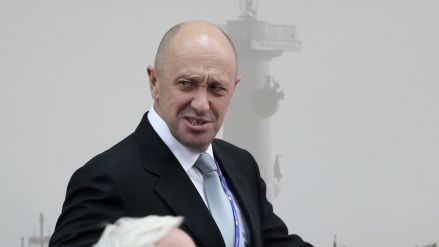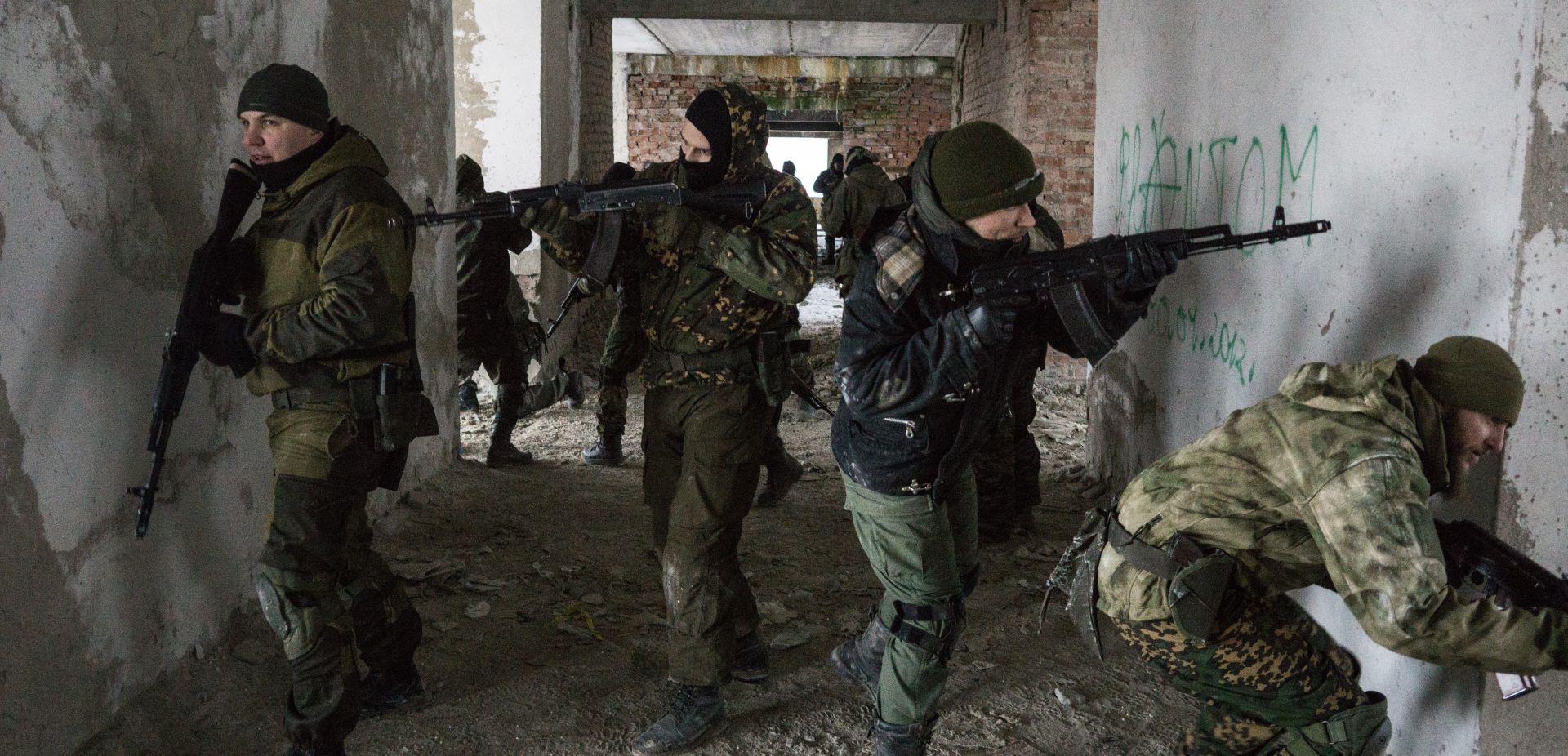
Is a convicted criminal who provided sexual favours to his fellow prisoners going to be the new President of Russia?
see more
The activity of Russian trolls in the Polish Internet is clearly visible. It has increased significantly since the Russian aggression against Ukraine. It is estimated that at least 120 thousand fake news in Polish appear on the web every day. It means that the Russians have really sent lots of trolls to the “Polish front”, and for sure each of them shows great activity – as it results from press materials, the workers of “troll farms” have to publish a certain number of posts every day.
A large majority of trolls use templates that define exactly what and how they should write. Therefore in most cases it is easy to recognize their posts. Careful examination of people posting fake news can only assure us that we are dealing with a troll.
In the vast majority of cases Facebok or Twitter trolls use nicknames and have very few friends. Some of them ordinary Polish names and surname, giving minimum “about me” information – for example only the city they come from. Their command of Polish is usually good but not infrequently do they make mistakes or loan translations. Recently there have appeared trolls who speak Polish worse – is a there a shortage of Polish philologists?...
Are these trolls?
Let’s take a closer look at some active users on Twitter who definitely behave like trolls and in all probability are Russian trolls – though there is no hundred per cent evidence for that (and there is no chance to obtain it). They are perfectly anonymous, do not reveal their surnames or photos and their activity on Twitter is short-lived. What distinguishes the posts published by them from others? Firstly – decided anti-Ukrainianism. Secondly – more or less explicit Russophilia.
The first one allegedly lives in Toronto (the letters “KPK” on his profile may come from the name “Kongres Polonii Kanadyskiej” [Canadian Polish Congress]!) and he’s been on Twitter since August 2022. He writes about himself: “Ambassador of knowledge and common sense. Engineer and entrepreneur. Market information straight from the horse’s mouth”.
The profile photo, in all probability, is a jacket or a full suit advert; there are plenty of this kind on the Internet (“men’s jacket…”). And here a fistful of his latest tweets, written by the way in excellent Polish:
“I’m calling on everyone to support the farmers blocking Ukrainian border posts. It’s already not about the farmers’ pockets but also about the health of yourselves and your children. Ukrainian grain and meet – it’s a poison”.
“Before the Vienna campaign [victorious campaign against the Turks in 1683] Jan III Sobieski considered a strike on Podilia, Prussia or Moldavia. Instead of that he indebted the treasury and helped Austria in her struggle against Turkey. He believed that helping Austria was in Poland’s interest. We all know how it ended. After 440 years we are making the same mistake. The analogy: strong Turkey (Russia) vs. Austria (weak Ukraine). Everyone at home pushed for a war against Turkey (today against Russia). The treasury in debt to the tune of 0.5 million PLN (1683) vs. the budget in debt in favor Ukraine (100 billion PLN in 2022), lack of gratitude from the emperor Leopold vs. lack of gratitude form the Ukrainians”.
“The Ukrainians have never been our brothers. Since the second half of the 16th century they have murdered us in the most cruel ways possible. Today myths are being created about the Polish-Ukrainian brotherhood that has supposedly lasted for centuries”.
There is little point in commenting on these tweets. The Ukrainian grain is being sold to a few dozen countries (including the EU) and nobody complains about it, not unlike about the meat (which, in turn is not a significant Ukrainian export). The idea that Jan III Sobieski should have assisted Turkey against Austria appeared long ago, but the utter ahistoricism of it is astounding. It is pure nonsense to comparing the situation from centuries ago with today. Besides, Ukraine is very grateful to us for the help we’ve been offering (which is reflected for instance in the results of opinion polls or Ukrainian politicians’ official statements). And when it comes to the last tweet: before 19th century there had been no Ukrainian nation…
The next author who wrote on his profile: “for boorishness, <
> [“Polin” means Poland in Hebrew], Ukrophilia, Banderism [Bandera was a Ukrainian nationalist] there is a ban, out of the way!!!” is, in turn, openly and extremely pro-Russian – so much that it is stupefying. Here are examples of his tweets from the last period:
 SIGN UP TO OUR PAGE
SIGN UP TO OUR PAGE
 “ – said the tank company commander under the pseudonym ”.
“ – said the tank company commander under the pseudonym ”.
“At an 80-year interval our grandfathers and great grandfathers burned down German equipment and now their grandchildren are sending the NATO equipment go to the scrap heap”.
Of course, in the first of the quoted tweets “Samara” is a Russian, in the latter – the grandfathers and their grandchildren are Russians. Another tweet by the same author is hardly surprising: “Poles are like little kids: one has to beat them on the Duda…” [play on words: Andrzej Duda – Polish president; duda, infml pej. – a willy].
And yet another author who has been active on Twitter for a short time, because she (he?) joined in August 2022. To another person’s tweet that US President Joe Biden will visit Poland, he recently replied: “Another idiot with his head stuck in the TV. The Polish nation should not humiliate itself in front of anyone. I will tell you straight out, you pea-brain that this applies to everyone, both the USA and Russia”
Here – referring to an opinion on the actions of the Ukrainian forces: “Maybe it would be reasonable to mention the deeds of both sides? To objectively report the events of the war? Nobody came up with that, right? In Poland you can only be for or against, there is never anything in between. Maybe that’s why historically speaking we are always fucked.” And on another occasion: “Just so that we don’t get a nuke from the Russkies as a thank you and catch up too late as always in our history...”.
This troll (because there is probably no doubt about his provenance) acts reasonably: he is not pro-Russian (he refers to the Russians as to “Russkies”), but he is anti-Ukrainian, threatens with an atomic bomb and tries to prove that Kyiv is also to blame for the Russian invasion of Ukraine.
Contemporaneity and history
Of course, Poles are threatened with refugees, with the fact that after the introduction of the Ukrainian language, they will get into local governments and into the Sejm [lower house of the Polish parliament] – as if thousands of newcomers suddenly and unexpectedly received Polish citizenship (because it is necessary to run for parliament) or another European Union country (this in turn would give the right to participate in local elections). And according to the Polish Ministry of Interior: “the President of Poland is not bound by any deadlines in cases for granting Polish citizenship. In practice, the decision of the President is currently expected for more than a year”. In practice, however, the procedure is longer and can take several years.

 SIGN UP TO OUR PAGE
SIGN UP TO OUR PAGE
 “
“




